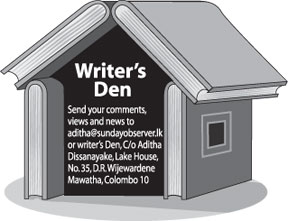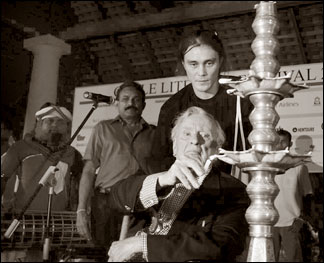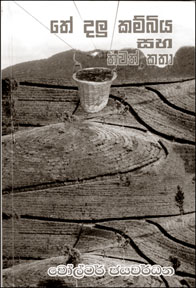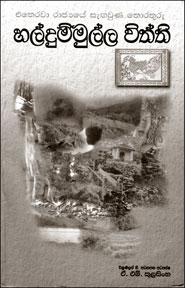|

Serendipitous encounter
An unexpected meeting with Gore Vidal:
by Brendon Gooneratne
On 16 January 2008 Yasmine and I travelled to Galle to attend (and in
Yasmine's case to participate in) the Galle Literary Festival 2008.
|

At the opening ceremony in Galle |
Yasmine had accepted appointment as Patron of the 2008 Festival, and
was also taking part in 4 events on the GLF program. I had cancelled my
own presentation on "Robert Knox in the Kandyan Kingdom" when I realized
that its timing would clash with Alexander McCall Smith's talk, "A Good
Detective and a Good Woman", which I was eager to attend.
While at dinner on the verandah of the Lighthouse Hotel, where we
were staying, lo and behold whom do we see five yards away from us, but
Gore Vidal himself, seated in a wheelchair, gazing out at the ocean.
Yasmine, who had met Vidal at the press conference on the previous
evening, warned me that the famous American author had lost his baggage
at Dubai on his way to the Festival from California, that he had not yet
received it, and would therefore probably be in a fairly foul mood. I
was scheduled to interview him on Sunday afternoon (the 20th), but this
opportunity was too good to miss.
After I had had my dinner, I strolled over to him and introduced
myself. Despite the loss of his baggage, Vidal was impeccably dressed in
a blue-black striped suit, a blue striped shirt and tie. I thought he
looked the epitome of the old guard of the 1950's and 1960's.
He was also - unexpectedly - very cordial, courteous and polite in
his manner to me. We started talking, which he obviously loves to do. He
has a reputation as a great raconteur, and he certainly did justice to
that reputation as the minutes rolled by.
Our conversation ranged over many subjects: we talked about
literature, history, politics, and about the many people he had known
over his long life.
Despite his good humour, he was not without complaint: first against
his companion/helper Dietmann who, he said, keeps wheeling him around in
his wheelchair and then leaves him for long periods on his own while he
(Dietmann) goes away to work on his computer; next about the loss of his
shirts.
I mentioned this later to the Scottish novelist Alexander McCall
Smith, to which McCall Smith ("Most of my friends call me Sandy")
replied that everyone loses baggage sometime when travelling on
international airlines, and there was really no need to make such a fuss
about it.
Vidal is 82 years old, and when this sort of thing happens to a
person of his age, who might also be irritated at being confined to a
wheelchair, it would be natural to expect the loss to loom large on his
horizon.
Vidal told me that he has been in a wheelchair for several decades,
due to a war injury which, he said, he regards as his gift to his
country. I believe it was a knee injury.
He seems to be a rather slim person of medium height (I could not, of
course, estimate his height accurately since he was seated in his
wheelchair throughout our conversation).
He had a glass of Black Label whisky in his hand when we met. "Three
fingers," he ordered the waiter in my hearing when he asked for two
refills in the course of our 2-hour meeting that evening.
Arrangements had been made for another meeting with Vidal four days
later, at which Yasmine was to join us, but following this serendipitous
encounter we cancelled it, not wishing to tire our guest.
Yasmine finished her dinner on the verandah with a friend, Jill
Macdonald, who runs "The Study", an educational institution in Colombo,
while I chatted with Vidal (his companion Dietmann having disappeared
yet again to work on his computer).
Gore Vidal is a half-brother of the late Jacqueline Onassis, formerly
Jacqueline Bouvier Kennedy. Having been a member of the Auchinloss
family, he has been present at numerous family occasions, and
consequently had many stories to tell about the Kennedys, not all of
which can be repeated here. I give below a sampling of comments he made
on a variety of subjects during our conversation, and anecdotes that he
told me.
That pair (the Clintons), said Vidal, know how to kill. "You do not
cross their path." "I did not like Bobby Kennedy," he said, "and I once
complained about him to his brother John F. Kennedy. 'Robert,' said
John, 'is basically a policeman: if he hasn't secured a conviction by
evening, he'd go home and arrest his own mother.'"
Aristotle Onassis? "A great friend of mine. Charming, well-mannered,
a good host, and a useful and helpful friend." I told him that Onassis
was not admired by me because he had earned his first million dollars
killing whales off the South American coast, and had covered the
bar-stools of his yacht with the scrotums of baby whales. Vidal's only
reply to this was that his helper Dietmann would like to make my
acquaintance, because he is a staunch environmentalist like myself.
Onassis, he said, who was personally acquainted with most of the
great celebrities of the period, had once invited Winston Churchill on
board his yacht, and had gone to Cannes to pick him up.
Also on board on that occasion were Jacqueline Kennedy and her
husband John, who was facing a hotly contested U.S. Presidential
election in a few months' time with a formidable Republican candidate in
Richard Nixon.
John Kennedy and Winston Churchill were introduced to one another,
and the talk came round to the Presidential election. John Kennedy told
Churchill that he had a tremendously difficult and formidable hurdle to
overcome in convincing Protestant America to elect him, since he was a
Roman Catholic and was also married to a Roman Catholic. "Why,"
Churchill had promptly inquired, "don't you change your religion and
give up Catholicism?" Vidal had intervened. "In the U.S.," he had told
Churchill, "we do these things differently."
Vidal was also a close friend of the late Joseph Campbell,
philosopher and author well known for his writings about old societies,
religious myths and legends.
Vidal's publisher, Doubleday, had taken on Jacqueline Kennedy on
Vidal's recommendation as a Director of the publishing house, following
the break-up of her marriage to Aristotle Onassis. She did well there,
arranging for Doubleday to make the video recording of Joseph Campbell's
famous interview, "Myths And Legends of Ancient Societies".
Vidal asked me more than once whether I knew of Max Jacobson's work
which, unfortunately, I did not... then! I do now, of course, having
looked him up on the ever-helpful internet. Jacobson was a 'renegade
physician' who treated President Kennedy before and during his
Presidency.
He was part of the Presidential entourage at the Vienna summit in
1961, during which he administered dangerous amphetamines to the frail
JFK to help him combat fatigue. Dr. Max Jacobson, popular in Hollywood
during the early 1960s, and later known as 'Dr. Feelgood', travelled
secretly with Kennedy to keep him up with corticosteroids.
These things all had side effects, including depression and increased
sexual desire. Jacobson (and perhaps his influence over President
Kennedy) seems to have made a deep impression on Vidal.
Four days after our meeting, Vidal discussed "The Nature of the
American Empire", in the course of an excellent interview with Simon
Winchester as moderator, in the Eddystone Room of the Lighthouse Hotel
to a packed audience. He was in fine form.
In the presence of Mr. Robert E. Blake, the American Ambassador to
Sri Lanka, he referred to President George W. Bush as "Dum-Dum", and
delivered a scathing commentary on President Woodrow Wilson whom he
described as a dull and unenterprising U.S. President with a habit of
plagiarizing the work of others. The Treaty of Versailles itself was one
such plagiarized document, he said.
He was not too enthusiastic, either, about President Franklin Delano
Roosevelt, to whom he attributed the expansion of the 'American Empire',
caused by the fear of Japan. Under Roosevelt, America had started to
colonise other nations, and wage wars in other people's countries: the
excuse being that this was done "in order to protect our own".
In reality, said Vidal, Roosevelt was looking to expand trade
opportunities. Previously, in the 19th century, America had been
actively involved in the Opium Wars, during which Chinese people were
forced to smoke opium so that America and Britain could make money out
of it. "America could not have cared less about the debilitating and
addictive repercussions on the Chinese people".
In passing, Vidal mentioned the name of the 'numbskull' President who
ordered Commodore Matthew Perry to force Japan to open its doors to
American trade opportunities, adding that there exists a distinct
possibility that President George W. Bush ("Dum-Dum"), Dick Cheney and
others may well be prosecuted for conducting a horrendous and unjust war
in Iraq on false pretences, but in reality to grab Iraq's oil. America
does not care about other nations and peoples, said Vidal.
"Most Americans are malleable, and are easily exploited by political
leaders who have brought them to the brink of destruction - financially,
and in terms of world leadership".
A highly intelligent, interesting and erudite man who is fearless in
what he says, and who also, as his Essays reveal, writes beautifully.
Meeting Gore Vidal, first in conversation, then in public discourse,
was, for me, one of the highlights of the 2008 Galle Literary Festival
... which gave me some of the most illuminating few days I have ever
experienced.
Realities of life
Reviewed by Ishara Mudugamuwa
The 'Dalu Kambiya Saha Thawath Katha' is not only a book which has an
aesthetic value but one which is suitable for profound study. The book
presents the ardent ideas of the writer, and provides material for
intellectual discussion.
 There are fourteen short stories here with separate themes, all
focusing on the realities of life. There are fourteen short stories here with separate themes, all
focusing on the realities of life.
'Amma Thaththa Saha Godagalu Muhuda' is a touching story which
focuses on one aspect of the lives of the victims of the tsunami. It
reveals the difficulties most parents face today due to the escalating
cost of living.
'Jeevaka' is the main character in this story. His father makes a
great effort to feed him but unfortunately dies in the tsunami. After
his father's death Jeevaka and his mother live with great difficulties.
The aim of the author here is to make the reader realize the plight of
the down trodden masses.
The first three stories share a common theme. Ariyasena, Maththo Appo
and Siyathu are the main characters in the three. They are innocent and
helpless but kind hearted. All of them lead lives filled with
difficulties. Finally they reach a sad end.
Ariyasena in 'Viplawayaka Adiyarak' is a man with good qualities. 'Maththo
Appo' is the main character in the story 'Dewana Sil Padhaya Saha Wesak
Ulela' who dies in an accident.
'Siyathu' in 'Tali Gram Pium' is an odd job man who works in a post
office but he has never been made permanent.
When he dies he is buried by the government.
'Munuburage Samprapthiya' is another interesting story in this book.
It shows how love can change people. Though Wickramasingha Mudalali is a
strict person, after the arrival of his grandson he forgets all the
troubles he has with his son.
The Mudalali comes from the southern province and settles down in
Bandarawela. His elder son goes to the United Kingdom for his higher
studies.
The Mudalali is proud of his son and says "After he passes the exam
for Chartered Accountants my son will earn a lot of money and then he
can marry a bride with a big dowry."
But this does not happen.His son gets married to a Christian lady.
This comes as a big shock to him. After the arrival of the grandson
the situation changes.
"My son came back with my daughter-in-law. Now I'm a
grandfather......." rejoices the Mudalali.
All in all the stories are so realistic, so true to life that they
cannot be called black or white.
[email protected]
History of Etherawa Korale
Reviewed by Panchamee Hewavissenti
Haldummula Withthi is an ideal example of a fruitful result of an
investigation carried out by the author who has an excellent knowledge
of the Etherawa Korale, situated in the Uva Province. Haldummulla is the
Western margin of the Uva Province.
 The history of Uva will definitely arouse the keen interest of the
reader who wishes to know more hidden facts about the Etherawa Korale. The history of Uva will definitely arouse the keen interest of the
reader who wishes to know more hidden facts about the Etherawa Korale.
Laggala, the capital of king Rawana is situated in the Uva Province.
It is accepted that the world's oldest aircraft belonged to King Rawana
and his airport was situated at a place called Wariyapola. It is very
interesting to read the history of King Rawana who abducted a princess
from South India and incarcerated her in a cave at Sithaeliya.
The interesting and curious facts that the author has written in this
marvellous book as a result of a socio-economic investigation carried
out by him in order to observe the developments in Etherawa Korale as
divulged in the archaeological script called Medagama Sannasa depict the
Eastern portion of this area of administration. The Western part of this
Korale is now in the Kadawatha Korale of Sabaragamuwa.
In this book the author has peeped deep into the buried history of
the ancient society and presented his valuable inventions and
appreciable instances for the benefit of the present and future
generations.
Without sticking only to the original sources, he has attempted to
disseminate what is right by studying, reading ancient documents,
associating with the learned, observing places, incidents related to
this and conducting investigations.
This is not merely a book which illustrates the history of the
glorious Uva Province, as it contains socio-scientific matters which
also have historical and archaeological importance. It divulges many
hitherto unknown information which the author presents with facts and
figures. It brings forward facts such as the behaviour of our ancient
ancestors, their language, culture, folklore etc.
This is a book which can be read with pleasure. When pouring through
the pages of this book, the reader comes across some difficult matters
for which the author himself provides explanations. Such as the author's
definition of the word-Uva.
Uva is not from Huwa (hoot). But Wuwa (happened). He brings out some
facts to prove that the western boundary of Uva was extended up to
Opanayake of Sabaragamuwa during ancient times. He has seen the arrival
of Lord Buddha through different eyes.
This book says that the Sinhalese have descended from Yakshas and
Veddhas. Also there are many assumptions that the foundation for the
agricultural society was laid during the first visit of the Buddha.
He has kept proofs extensively in writing to prove the story of King
Rawana. As I see it this is a fulfillment of a long felt need for a book
on such a curious arena. This book lavishly presents an investigation
useful to the reader who wishes to know more about the hidden history of
Etherawa Korale.
[email protected]
|
